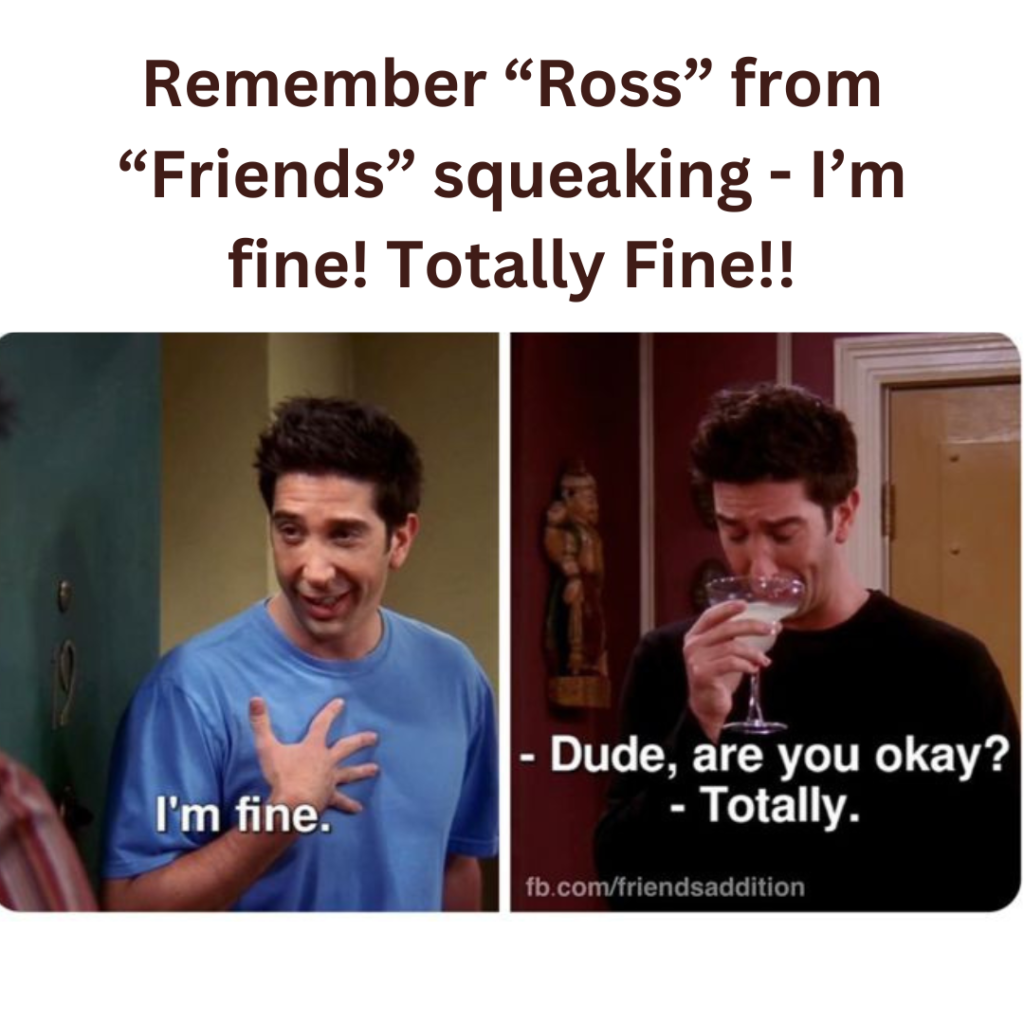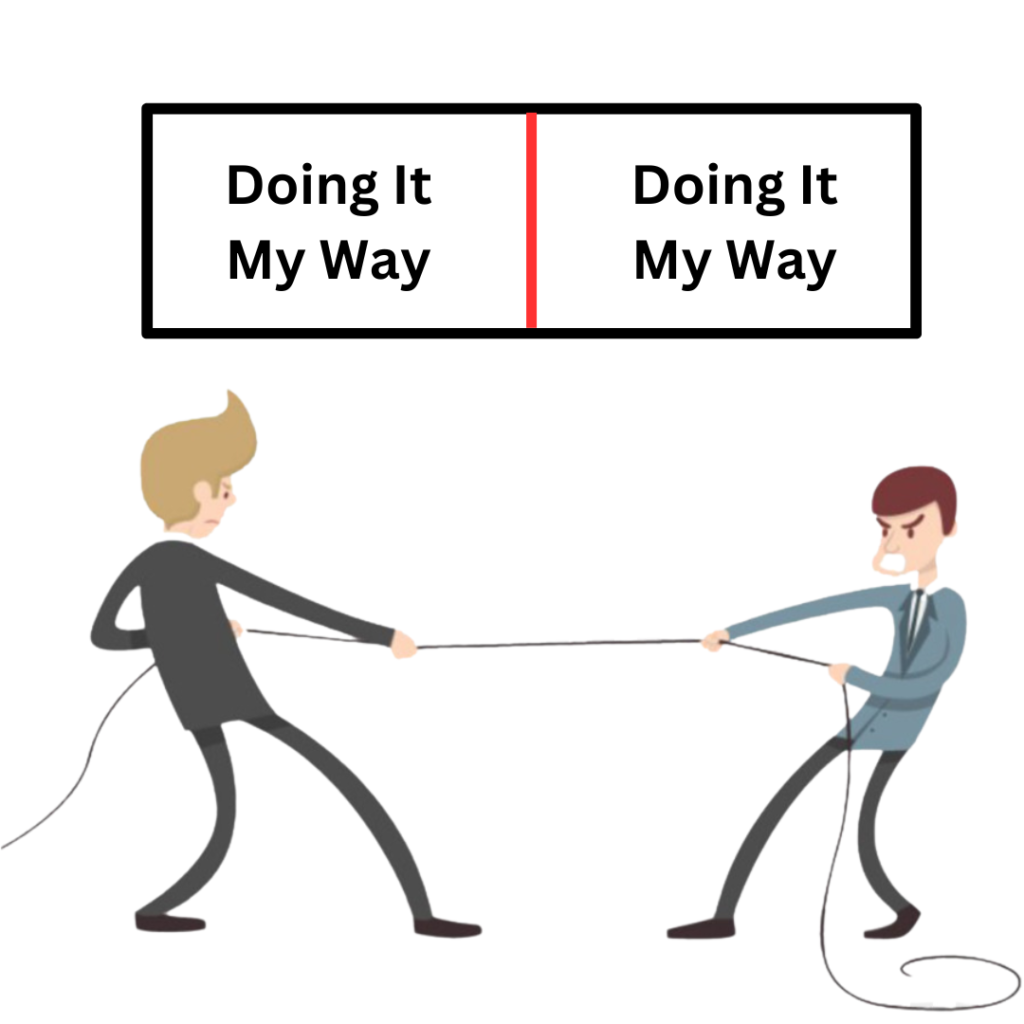Ever been in a situation like you had an altercation with your peers and You’re annoyed, but you’re planning to get through the day squeaking – I’m fiiiineeeee !!
If that’s how you’re planning to deal with conflict – well then my heartfelt sympathies!!! As you’re about to cruise through unannounced rogue waves of self-inflicted crisis which may tower over before you realise and can toss you out of your safe abode.
Don’t worry!! I got you!!
All you need is some Conflict Management Remedies to reduce the impact and have you swum to the shore smoothly☺.
Well before remedies, let’s understand the problem first !!
What is conflict in workplace?
A conflict is a process when one group perceives differences and opposition between itself and another group about- interests, beliefs, resources, values, and practices that matter to them. (Adapted from Wall and Callister, 1995).
In other words : We may get to choose organisations to work with but often don’t get to pick our colleagues. Yet we are bound to co-work good 45 -60 hours/week often in high pressure situation. In such scenarios conflicts are bound to happen.
As much as being around and working with people of different working styles, ideas, minds, interests, values provides huge learning inlet – On the flip side In cases of disagreements or biasness, If not addressed on time – It may begin to plague a healthy work environment leading to tension and animosity among co-workers, making it difficult to work together.

As published by HBR(Harvard Business Review) based on studies done on 76 companies across the globe : 91% of Workplace Conflicts comprises of four triggers :
1. Communication Differences (39%) : In a diverse workplace, clashes in personalities, ideas, confusing or lack of communication can emerge, hindering collaboration.
2. Opaque Performance Standards(14%) : Loosing the sight of what is important and what needs to be priortized, teams are left in vague understanding of how their work is being interpreted, which tasks they were supposed to prioritize and which tasks were not being measured at all.
3. Unreasonable time constraints (16%): This often occurs when peers are collaborating on a project and one co-worker misinterprets the amount of time it will take their partner to complete a task.
4. Unclear Expectations(22%) : This occurs when there is lack of clarity in group vis-a-vis individual tasks where everyone assumes that someone else is responsible for completion, leading to finger-pointing, blame and missed deadlines.
Now we will learn some coping mechanism around these conflicts in details further down. But first let’s understand “what is Conflict Management?”
In simplest language : Conflict Management is a process in which two or more parties involved, work together towards a solution to a problem in a productive and amicable way to achieve a result that benefits all the parties involved and create a positive environment to co-work.
Must noted – that In order to have a conflict remedies successful, Idea is not just about making nice by band-aiding the disputes for temporarily relief but it’s more of getting into root issues , coming to the grips with what is wrong and setting it right across the organization.

Now let’s go with few Conflict Management styles to our rescue…………….
1. Remember Comprehension is as important as communication : A clear, crisp, no- assumption based communication airing the problem in a neutral manner with open dialogue to all parties involved, active listening and negotiating is the right way to reduce any misunderstandings.
2. Be transparent about performance expectations: First, learn your company’s larger goal. Now given this information, decide on What skills, goals or outcomes most strongly correlate with what your team is supposed to deliver? Set clear, realistic, non-ambiguous goals around how performance will be measured and what need to be accomplished?
3. Manage time expectations: Understand from the team: Are they spending too much time on ad-hoc requests that throw their schedules off balance? How can you improve their work-life balance and workload distribution? Doing this will help you set longer term goals and create work plans that serve everyone.
4. Clarify task and role expectations: Try understanding team’s expectations of you and themselves and use their feedback to create a short template that lays out the expectations. Remember these expectations need to be transparent and mutually accepted.
Conclusion : Remember workplace conflicts are Inevitable. But how they are managed and resolved can significantly impact the overall health of an organization. By implementing effective strategies organizations can transform conflicts into opportunities for growth and collaboration fostering long-term success and employee satisfaction.
Therefore ability to address workplace conflict in the early stages is an important component of resolving the issues.





Leave a Reply